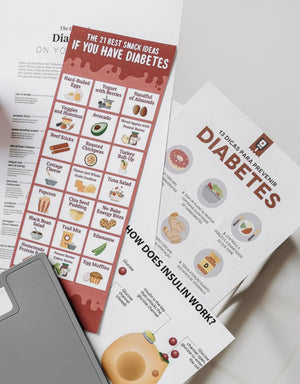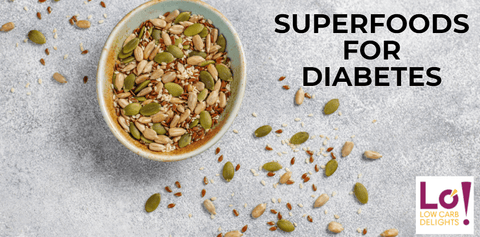
Are chia seeds good for diabetic patients?
Chia seeds have become increasingly popular due to their potential benefits, especially for individuals managing diabetes. Sourced from the Salvia hispanica plant, these tiny seeds are rich in essential nutrients like fiber, omega-3 fatty acids, and protein, making them an excellent addition to a balanced diet. For those with diabetes, chia seeds provide several distinct advantages.
Thanks to their high fiber content, chia seeds help regulate blood sugar levels by slowing carbohydrate absorption and preventing glucose spikes, which is crucial for managing diabetes. With a low glycemic index, they have a minimal impact on blood sugar, making them a great choice for those looking to maintain control over their blood sugar.
Chia seeds also contain healthy fats that support heart health, which is especially important for diabetic individuals who are at higher risk for cardiovascular issues. Furthermore, their ability to promote feelings of fullness helps with weight management, an important factor in diabetes control.
By incorporating chia seeds into daily meals, individuals with diabetes can experience significant health benefits. Their versatility makes them easy to include in a variety of dishes, helping to support stable blood sugar levels.

Nutrition Table for Chia Seeds per 1-ounce (28 grams)
Nutrient |
Amount |
|---|---|
Calories |
137 kcal |
Protein |
4.7 g |
Fat |
8.6 g |
Carbohydrates |
12 g |
Sugars |
0 g |
Iron |
1 mg |
Vitamin C |
0 mg |
Vitamin B1 (Thiamine) |
0.1 mg |
Vitamin B3 (Niacin) |
0.5 mg |
Health Benefits of Chia Seeds for Diabetics
Regulates Blood Sugar: The high fiber content in chia seeds slows the absorption of carbohydrates, preventing rapid blood sugar spikes and helping to stabilize glucose levels.
Improves Insulin Sensitivity: The omega-3 fatty acids in chia seeds can enhance insulin sensitivity, helping the body use glucose more efficiently and reducing the risk of insulin resistance.
Rich in Antioxidants: Chia seeds contain antioxidants that help combat inflammation and oxidative stress, which are common issues for those with diabetes.
Heart Health: Chia seeds are rich in healthy fats, including omega-3s, which can lower bad cholesterol and support overall heart health, a critical concern for people with diabetes who are at higher risk for cardiovascular diseases.
Supports Weight Management: Chia seeds promote a feeling of fullness due to their high fiber and protein content, which can help control appetite and support weight management—important factors in managing diabetes.
Precautions to Take When Eating Chia Seeds with Diabetes
Stay Hydrated: Chia seeds absorb water and expand, so it’s essential to drink plenty of water when consuming them to prevent constipation or bloating.
Start Slowly: Begin with a small amount (like 1 teaspoon) to assess how your body reacts, and gradually increase to avoid digestive discomfort.
Check for Interactions: If you are taking medications for diabetes, consult your healthcare provider, as chia seeds may interact with certain medications, such as blood thinners or those affecting blood sugar levels.
Avoid Excessive Intake: Overconsumption of chia seeds may lead to gastrointestinal issues due to their high fiber content. Stick to the recommended daily intake (1-2 tablespoons).
Monitor Blood Sugar Levels: While chia seeds can help regulate blood sugar, it's important to monitor your blood sugar regularly to ensure they don't cause any unexpected changes, especially when adding them to your diet for the first time.
How Chia Seeds Help Regulate Blood Sugar
High Fiber Content: The soluble fiber in chia seeds forms a gel-like substance when mixed with water, which slows the digestion and absorption of carbohydrates, helping to prevent blood sugar spikes.
Low Glycemic Index: Chia seeds have a low glycemic index (GI), meaning they cause a minimal increase in blood sugar levels compared to high-GI foods. This helps maintain stable blood sugar throughout the day.
Rich in Omega-3 Fatty Acids: The omega-3 fatty acids in chia seeds can improve insulin sensitivity, which helps the body use glucose more effectively and regulate blood sugar levels.
Promotes Satiety: Chia seeds expand in the stomach, leading to a feeling of fullness. This helps reduce cravings and overeating, ultimately assisting in weight management, which is important for managing blood sugar levels.

A Nutrient-Rich Option for Blood Sugar Management
Chia seeds offer numerous health benefits for diabetic patients, making them a valuable addition to a well-structured diet. These tiny seeds are rich in essential nutrients such as fiber, omega-3 fatty acids, and high-quality protein. Their remarkable ability to absorb water aids in creating a gel-like substance, which can help slow digestion and maintain stable blood sugar levels after meals. This characteristic is especially beneficial for individuals managing diabetes, as it helps to prevent spikes in blood glucose.
Studies have shown that incorporating chia seeds into daily meals can positively affect overall health. The fiber content promotes feelings of fullness, potentially aiding in weight management, which is often a concern for those with diabetes. Additionally, the anti-inflammatory properties of omega-3 fatty acids can contribute to better heart health, another critical aspect of diabetes management.
Chia seeds are indeed good for diabetes. By including chia seeds for diabetic patients in various recipes—from smoothies to salads—individuals can enjoy these health benefits while enhancing taste. Incorporating them into your diet can be a simple yet effective strategy in managing diabetes effectively.
This Blog post is an initiative by Lo! Foods, to provide accurate and Nutritionist / Doctor approved information related to Health. Lo! Foods is India's leading brand for Everyday Functional Foods. Foods designed for specific Health conditions or Needs. Lo! Foods also runs India's largest range of Low Carb Healthy Cloud Kitchens, under the brand names of Lo!, ProteinChef, ATH (All Things Healthy) and DiabeSmart.










Leave a comment
Your email address will not be published.